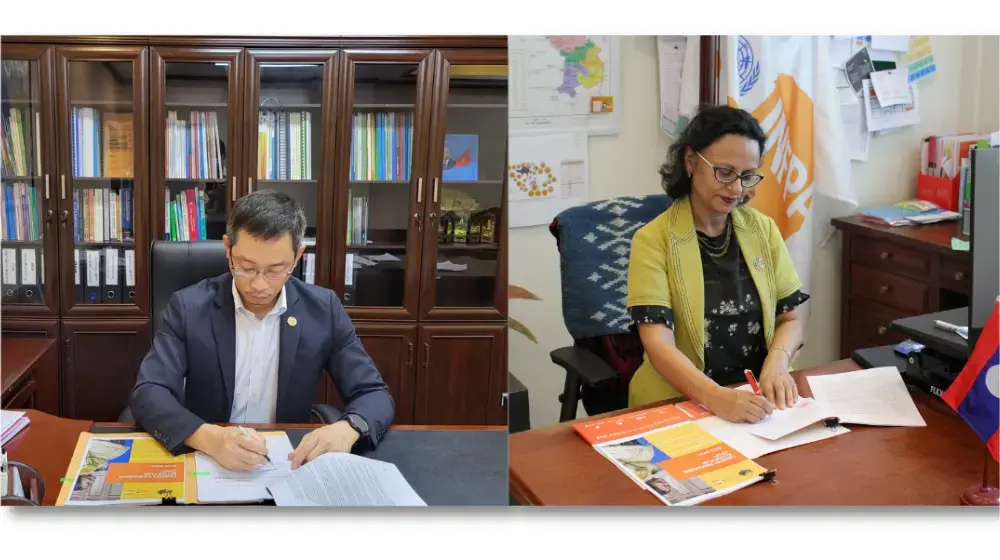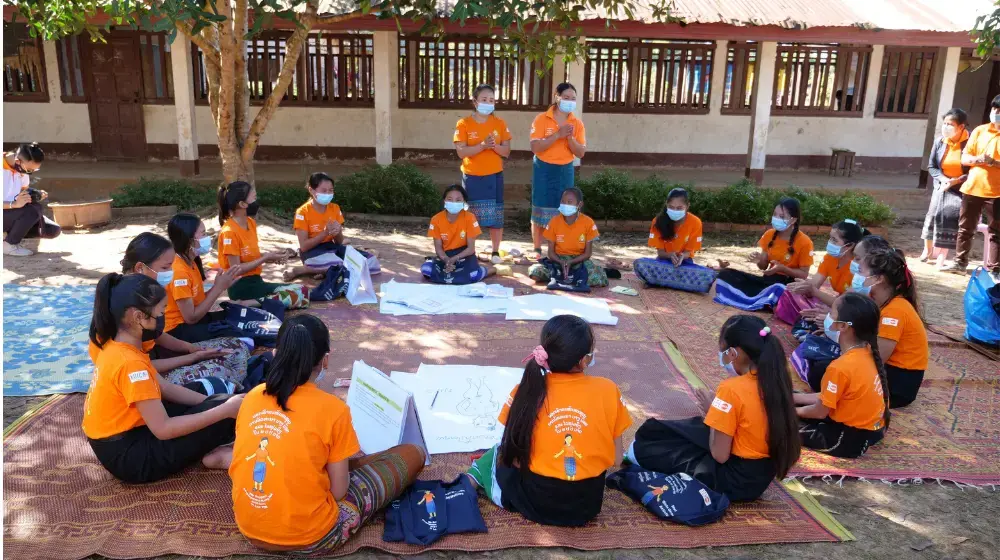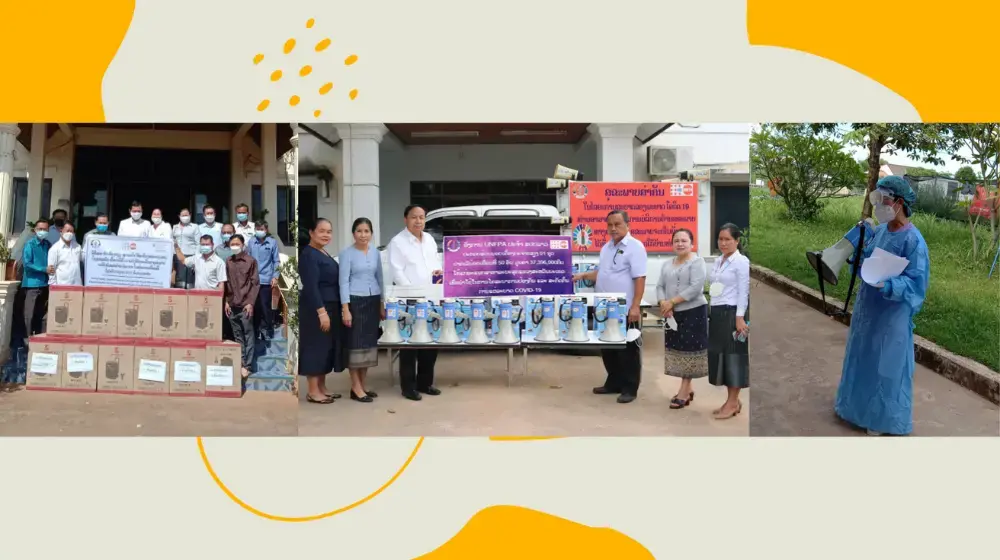COVID-19 has shown us that building human capital ie investing in the skills and capacities of people is critical if countries, societies, and people are to recover and adapt to changing circumstances.
The high returns of investing in family planning Increasing investments in voluntary family planning is highly cost-effective for the Government: spending $1 dollar on contraceptives in Lao PDR can reduce the cost of pregnancy-related care by $7 dollars and indirect social returns of as high as USD120 for every dollar invested – saving millions of dollars in associated healthcare costs that can go towards improving nutrition, education, and health of women and children.
Understanding inequities to leave no one behind In Lao PDR, access to family planning services and commodities, while improving steadily is marked by inequities. Almost 68% of the population live in rural areas, with those in remote areas without roads have the greatest challenge in accessing health services. Amongst married women, 14% of those who would like to delay or avoid pregnancy do not have access to contraceptives, when analysed by the province in some provinces this rate almost doubles, while similar can be seen for some Ethnic groups. For single, sexually active women, almost 7 out of every 10 have an unmet need for contraception.
Do you know that every 2 years in Lao there are about 286,000 unplanned pregnancies, mostly amongst those who do not have access to information and services about voluntary contraception? Many of the unplanned pregnancies are amongst the younger and or poorest women, and their lives and opportunities will become even more limited due to the unplanned pregnancy, while the child is less likely to benefit from good nutrition, health and education, thus continuing a cycle of poverty.
The number of unplanned births is expected to increase in Lao due to COVID-19 related impact, over a 2-year period, the number is expected to increase up to 331 000 or 355,000 unplanned births.
Within the ASEAN, Lao PDR has the highest adolescent birth rate, approximately 83 per 1,000 girls aged 15-19 have given birth, the maternal mortality rate remains high and is expected to increase due to COVID-19 related impact.
Protecting Women’s Rights requires multiple interventions: To continue and accelerate progress made to date, focused solutions at decentralised levels require attention for Lao PDR so as to leave no one behind.
UNFPA has been partnering closely with the Lao Government to support relevant Policies and programmes, family planning interventions such as post-partum care, family planning information, and services within youth-friendly services, reliable supply of quality contraceptives; strengthening national health systems, and gathering data to support this work for advancing towards the Sustainable Development Goals.
The Lao Government made voluntary commitments to mark ICPD 25. The commitments contribute to achieving universal access to sexual and reproductive health and rights as a part of Universal Health Coverage (UHC). The commitments include reducing unmet need for family planning information and services; increase availability of quality, accessible, affordable, and safe modern contraceptives; reduction of preventable maternal deaths through improved availability and deployment of skilled midwives; Increased access for all adolescents and youth, especially girls, to comprehensive and age-appropriate comprehensive sexuality education.
Protect the trend of Increasing National Investments in Family Planning: From 2005 to 2013, the Ministry of Health increased its domestic expenditures from $5,000 to $32,000 while UNFPA remained the main buyer of family planning commodities. But in 2014, due to a global shift in donor support for contraceptives, the Hygiene and Health Promotion and Mother and Child Health Centers within the Ministry of Health decided to increase the domestic funds for improving sustainable supply of contraceptives.
From 2017 to 2019, Lao PDR increased domestic budgets from $40,000 per annum to $270,000 per annum, but family planning budgets must be protected and increased now and post COVID-19, as they directly bear on well-being and opportunities of women and children and have direct consequences on families abilities to move out of a cycle of poverty.
As Lao graduates from LDC status, national funding for family planning must be secured as donor funds will reduce.
The challenges continue, so does UNFPA‘s engagement: The COVID-19 pandemic poses significant challenges to the health system in Lao PDR: risks of disruption in essential health and nutrition services for mothers, newborns, children, and adolescents. The Lao Government’s continued investments in voluntary family planning will be imperative to ensure an increase in Lao’s human capital investments and resilience of the people. UNFPA will increase support for interventions at the community level in collaboration with health partners and through capacity building for midwives and health professionals.
For more information, please contact:
Ms. Oulayvanh Sayarath, National Programme Analyst - Health System Strengthening, UNFPA UNFPA Lao PDR.
Email: sayarath@unfpa.org
************
UNFPA, the UN's sexual and reproductive health agency, works in over 150 countries including Lao PDR, to achieve zero maternal deaths, zero unmet need for family planning and zero gender-based violence and harmful practices towards women and girls.





